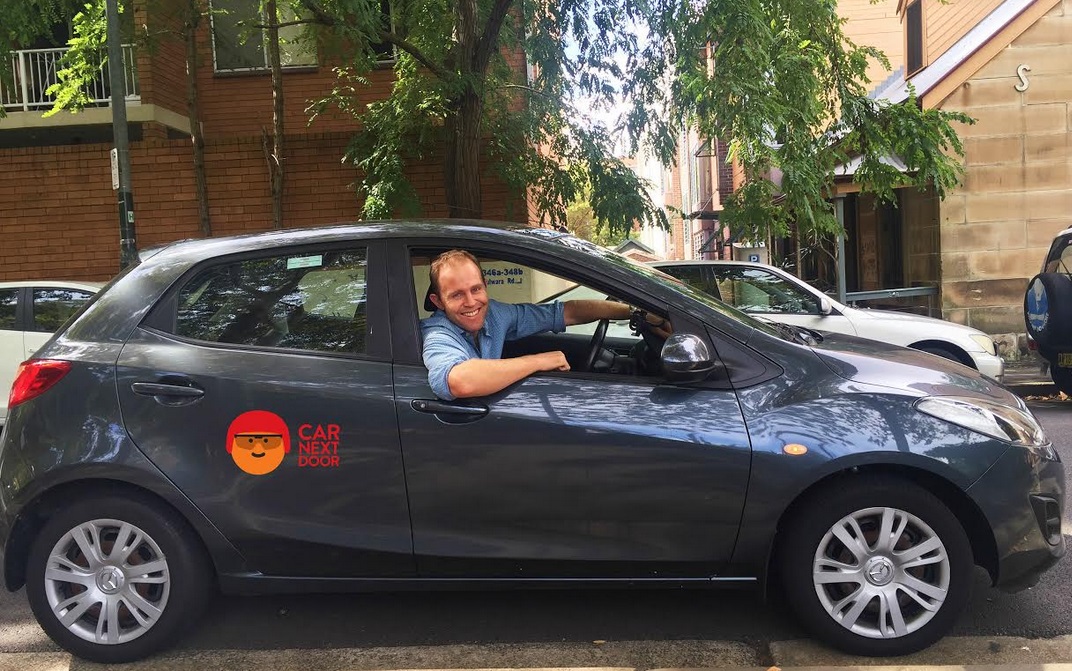Ways To Reduce Your Car Expenses

With the new year, comes new savings goals. One of the biggest budget outgoings is transport and a new Triple A study shows that the cost of getting around is increasing at twice the rate of inflation, with the average Aussie metro household spending $18,221 a year – a figure that is up $736 in the last 12 months. Sydneysiders are paying the highest total transport costs at $432 a week.
“Cars are one of the biggest expenses we have and when you look at all the outgoings like registration, fuel, insurance, tolls and depreciations, they quickly become a huge financial burden,” says Will Davies the CEO and co-founder of neighbour to neighbour car sharing platform Car Next Door.
“The amount of money spent on cars that are parked 95 per cent of the time is just mind-blowing,” he added.
Mr Davies shares seven ways easy ways to cut back on car expenses:
Save on fuel
Aussies who own their own car outright spend an average of $71.50 a week on fuel. That’s over $3700 a year. To get maximum bang for your petrol buck make sure to maintain your car’s recommended tyre pressure (the manual will tell you what it should be). Under-inflated tyres increase the friction between road and wheel, also known as ‘drag’. Keeping tyres inflated at the recommended pressure can increase fuel mileage by up to three per cent. Also make sure to clear out the boot. If you’re one for carrying around unnecessary clutter, it’s time to wise-up; a heavy load will be a drain on your fuel tank. On average, fuel consumption increases by two per cent for every extra 50kg.
Buy tyres online
A lot of people are buying their car tyres online, as you can get cheaper deals by cutting out the middleman. A common type of deal is four tyres for the price of three offer. Quite often you won’t get these offers in-store but just make sure you do your research because the cheapest tyres are not necessarily the best and make sure you buy from a reputable dealer.
Consider buying an older vehicle
It’s easy to become seduced by a shiny new car in the showroom, but consider this: new cars lose their value a lot faster. As a general rule, new cars lose as much as 20 per cent of their value in the first year and will be worth only 10 per cent of their original value after 10 years. Nab a great deal on a well-maintained, older car and you’ll stand a better chance of getting more of your money back on resale.
Find the right insurance deal
The average weekly spend on rego, CTP and licence for households in major cities around Australia is $31.41 per week. There are ways to bring down those premiums – these include shopping around to make sure you’re getting the best deal; if you’re a careful driver and haven’t made any previous claims, consider increasing your excess, which will result in lower premiums. If you drive infrequently and travel shorter than average distances, it may also be possible to lower your premiums by finding a provider that offers a drive-less-pay-less policy.
Repay your car-loan as fast as you can
If a car loan is necessary, go through your finances with a fine tooth-comb and consider how you can maximise those repayments to reduce the extra outlay that comes with a lengthy loan.
Make life easy with maintenance
You know how it goes: left unchecked one problem leads to another, a small issue leads to a bigger issue, and so on. Here are some things to look out for to ensure you don’t let the maintenance slip on your car – check the air filters regularly to keep the engine in top notch condition; watch out for oil levels as failure to do this could kill the engine all together; and carry out minor repairs yourself such as replacing wiper blades and addressing any rust. If you catch a minor issue early you can avoid a bigger problem – and bill – later on.
Share your car
Renting your car out when you’re not using it is an easy way to cut back on ownership expenses. Cars are rented out from $5 an hour and $35 a day; and car owners, renting through Car Next Door, are making anywhere between $3500 and $10,000 a year by renting their vehicle to neighbours when it’s not being used.
About Car Next Door
Launched in 2012, Car Next Door is on a mission to free people and the planet from the ‘one person, one car’ mentality. By connecting car owners with trusted borrowers in their local community, Car Next Door empowers people to save money, reduce waste and build cleaner, greener, better communities.
Car owners can rent their car, van or ute out when they are not using it, through Car Next Door’s secure online platform. Automated key exchange, payments, tolls, insurance, roadside and 24-hour member support are handled by Car Next Door, making it simple and safe for people to make better use of the millions of idle cars around Australia.










